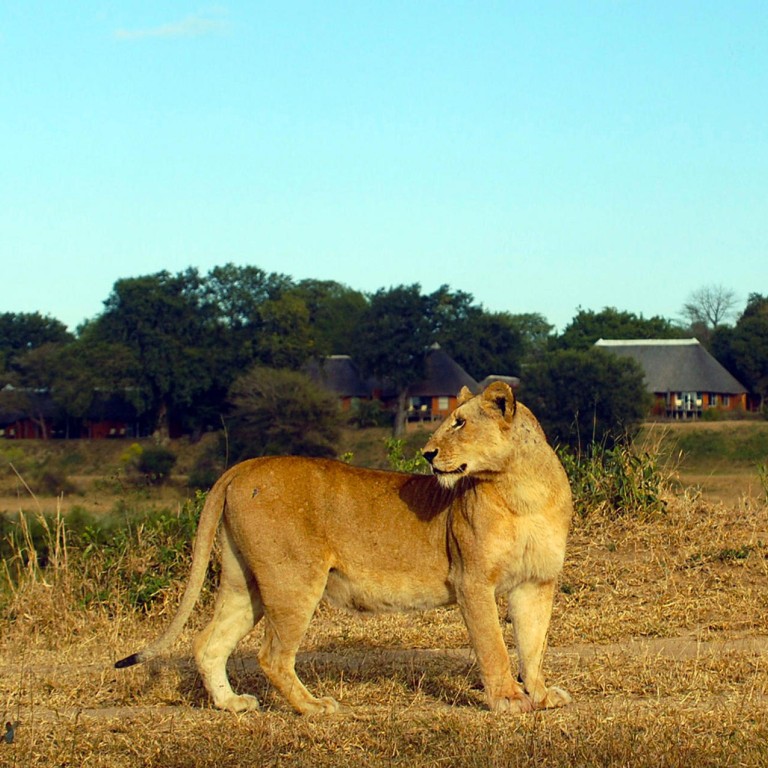
South Africa's big payout for white estate challenged
Black leaders condemn compensation to owner of South Africa's MalaMala game reserve in return for restoring land to its original owners
A South African government plan to pay millions of rand in compensation to the white owner of a luxury game reserve before returning the land to the local community has been branded "evil and indefensible".
MalaMala, the largest private "big five" game reserve in the country at 13,300 hectares, has been popular with international celebrities for its leopard viewing and eco-tourism for 50 years.
But the Mhlanganisweni community say they were dispossessed of the land and have been fighting a long legal battle for it to be returned.
The Economic Freedom Fighters, a new political party led by former African National Congress youth league president Julius Malema, said the deal was "economically unsustainable, politically unacceptable and in the long run sets a precedent with massive negative social consequences for our people".
Its spokesman Mbuyiseni Quintin Ndlozi added: "The MalaMala deal is simply evil and indefensible. The government has, with this land deal, institutionalised corruption and legitimised illegal activity.
It is a known fact that all land currently held by white farmers is stolen property, which must still be returned to the people and the historical injustice redressed
"It is a known fact that all land currently held by white farmers is stolen property, which must still be returned to the people and the historical injustice redressed. The government is now encouraging sales of stolen property at exorbitant prices and thereby benefiting twice those who benefited from colonialism and apartheid land dispossession."
The case highlights the fraught issue of land reform in South Africa, 100 years after the Natives Land Act gave black people ownership of just 13 per cent of all land and whites 87 per cent.
The slow pace of redistribution since the fall of racial apartheid in 1994 is a source of frustration and has prompted some to cast envious eyes towards neighbouring Zimbabwe's hotly debated programme.
South Africa's constitution mandates the redistribution of land with compensation, though not necessarily at market value.
The 15,000-strong Mhlanganisweni community has previously failed in a bid to regain MalaMala, which borders Kruger national park, through the national land claims court.
It has now asked the constitutional court for the land to be returned and for the government to pay its owner, Michael Rattray, compensation of 460 million rand (HK$361 million).
South African media reports suggest the state will accept, but will instead meet Rattray's own valuation of nearly 1 billion rand.
This has raised fears of a dangerous precedent that would make future land restoration virtually unaffordable.
The Mhlanganisweni community, which hopes to become a partner in the existing MalaMala business, said it was "unfair to offer such an owner full market value for the property, as he would then benefit twice from apartheid".
On Tuesday, Rattray said he could not comment until after the matter goes before the constitutional court next Tuesday. "I'm an environmentalist, I'm not a financier," he said.
A government official denied that compensation close to 1 billion rand was being considered.
Mtobeli Mxotwa, spokesman for the Rural Development and Land Reform Department, said: "It's still under negotiation and it's a long process. I don't have a figure but it definitely won't be that huge amount. That would eat the whole budget."
Land ownership remains a highly emotive and unresolved topic in South Africa. A total of 4,813 farms have been transferred to black people through various redistribution programmes since 1994, equating to more than 4 million hectares and benefiting 230,886 people.
But the government has consistently fallen behind schedule.
It aimed to redistribute 30 per cent of land by 1999 and eventually shifted this target to 2014, but has achieved only 8 per cent.
President Jacob Zuma has admitted the pace is "slow and tedious" and it was generally agreed the policy of "willing buyer, willing seller" had failed. But he has resisted calls to expropriate land without compensation.
Mxotwa said: "The government is abiding by the constitution. We cannot just grab land.
"Remember our country was founded on reconciliation and nation-building. We've been on a learning curve. We've got to adhere to each and every legal detail and they take a long time."
The process had also been slowed because some landowners demanded exorbitant prices, he continued. There have also been disputes between traditional leaders and communities and within families.
But Mxotwa said that since 2009, the government had redistributed more land than in the whole period from 1994 to 2009.
